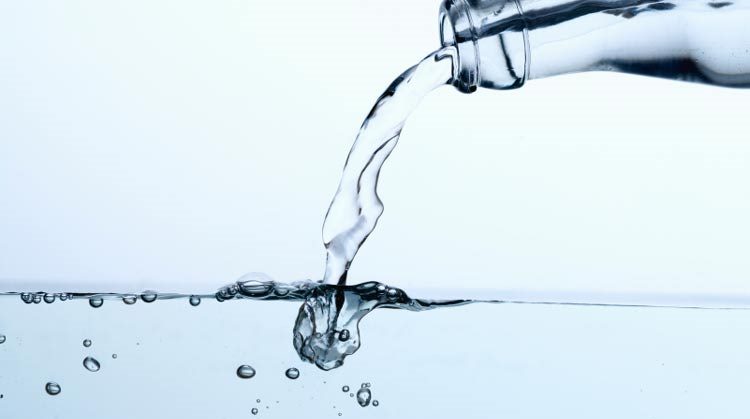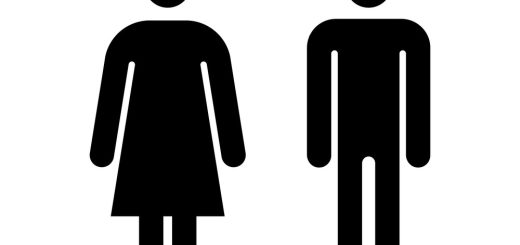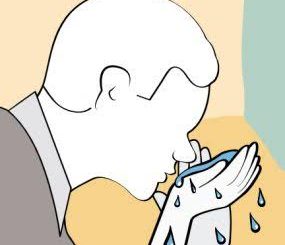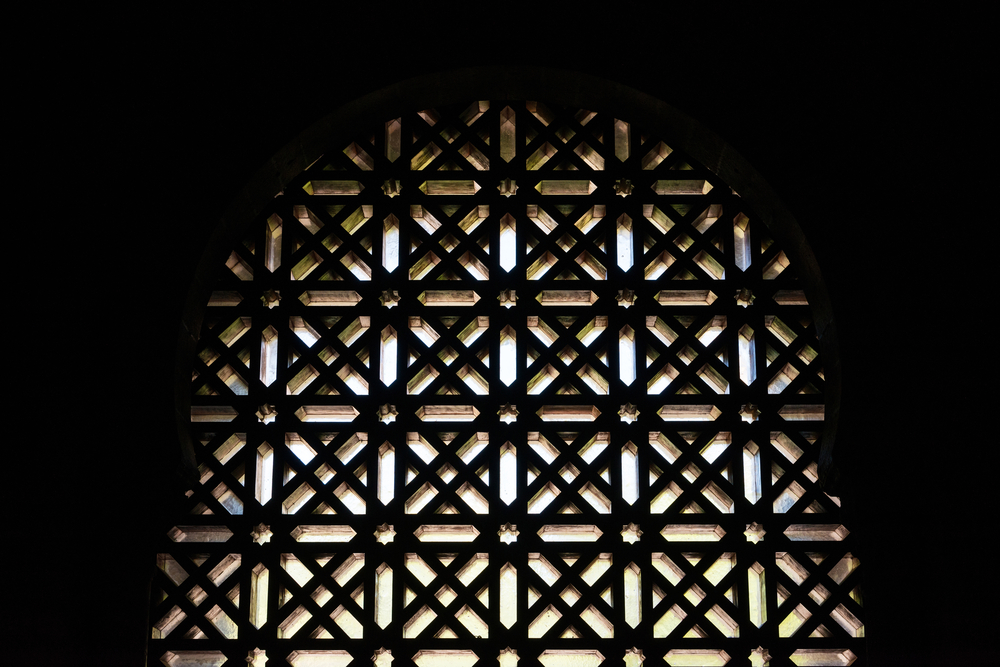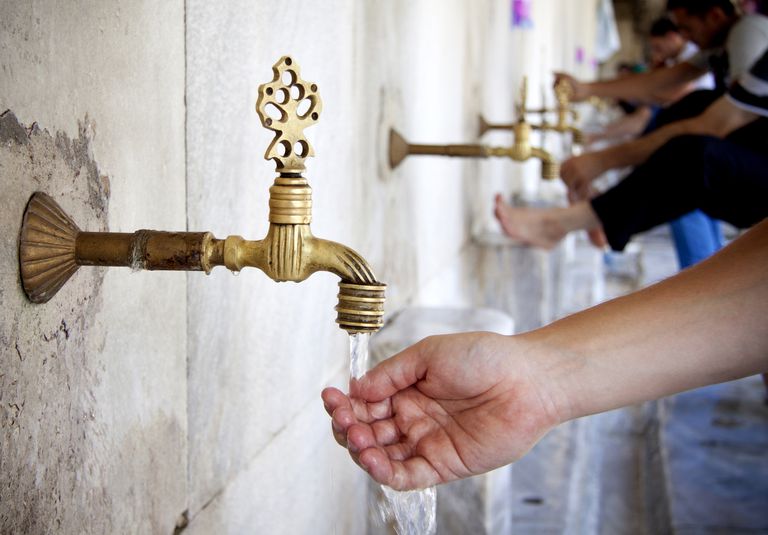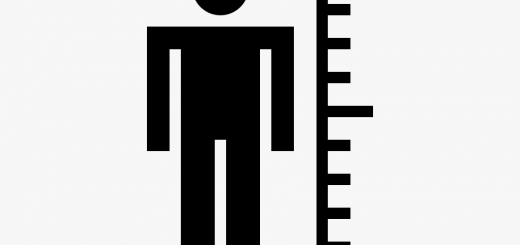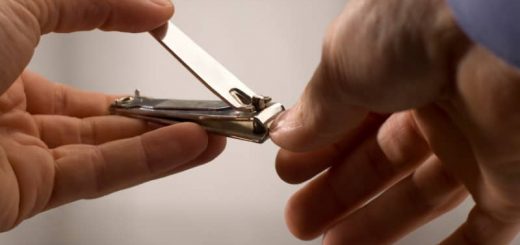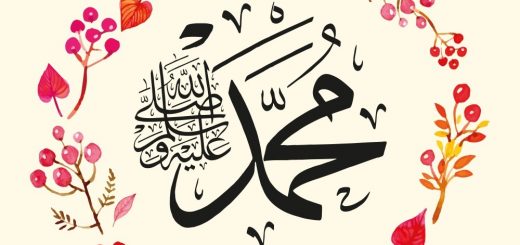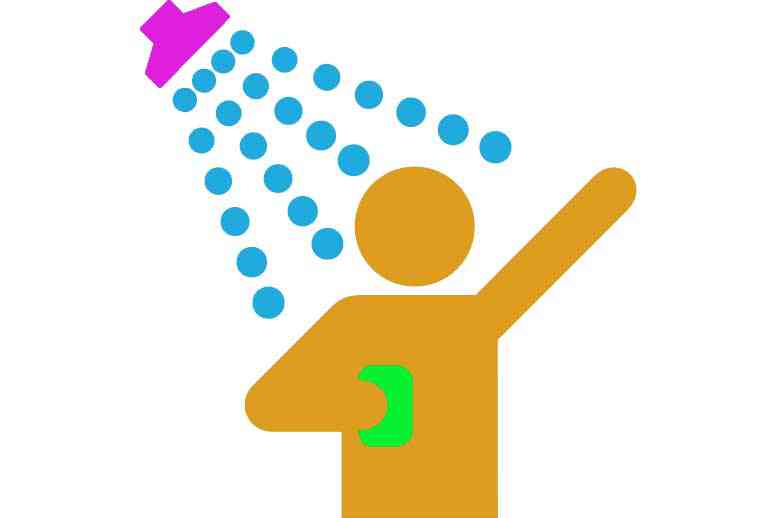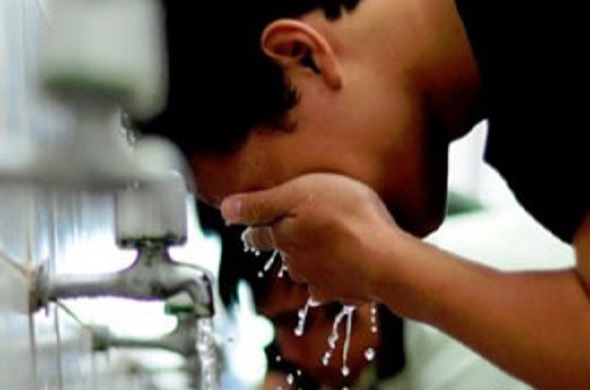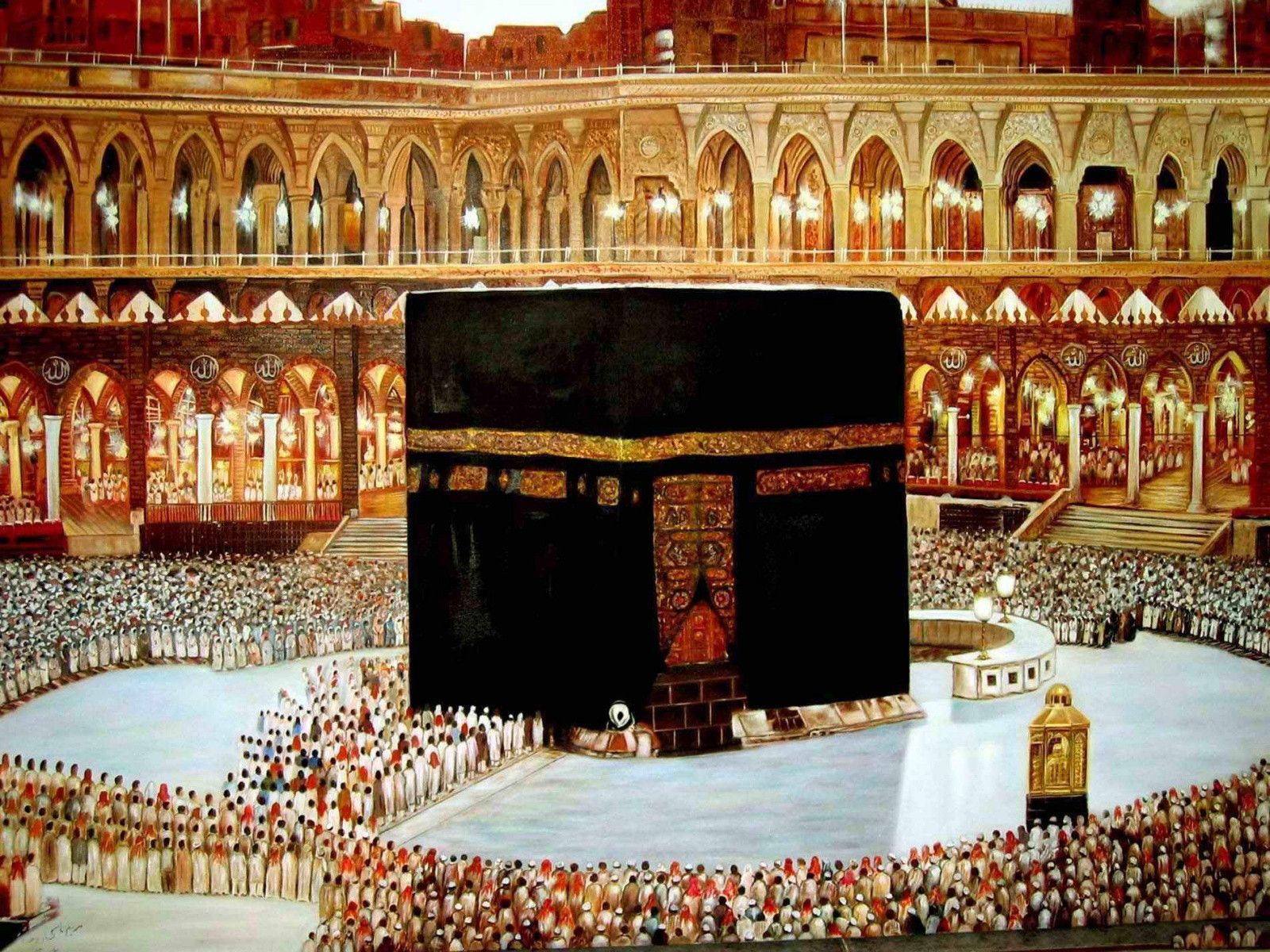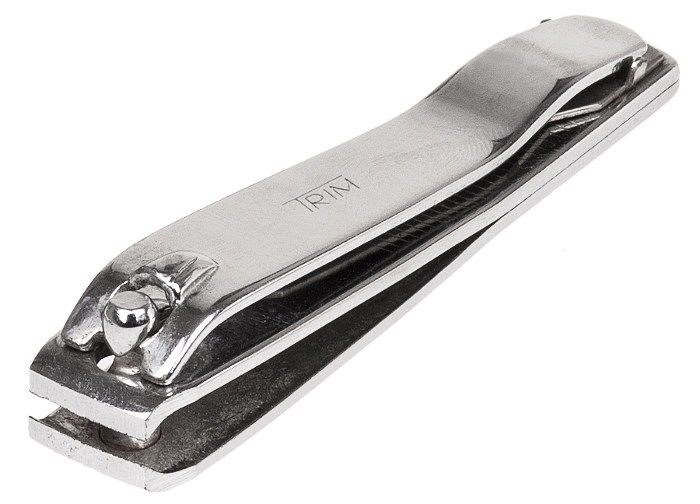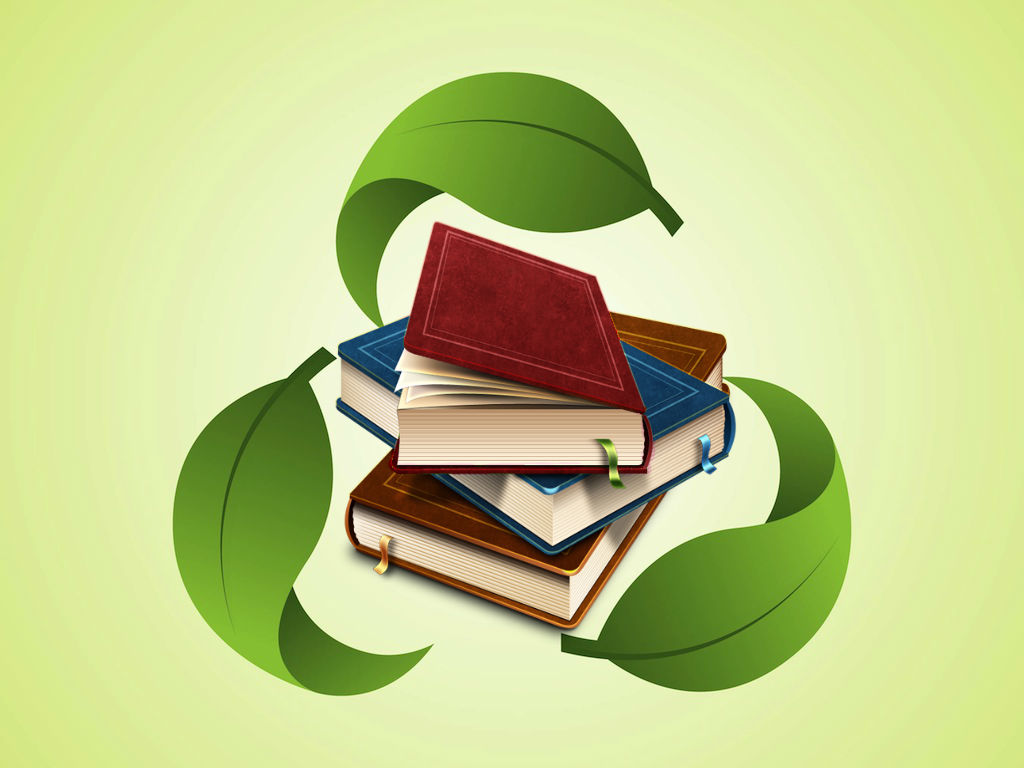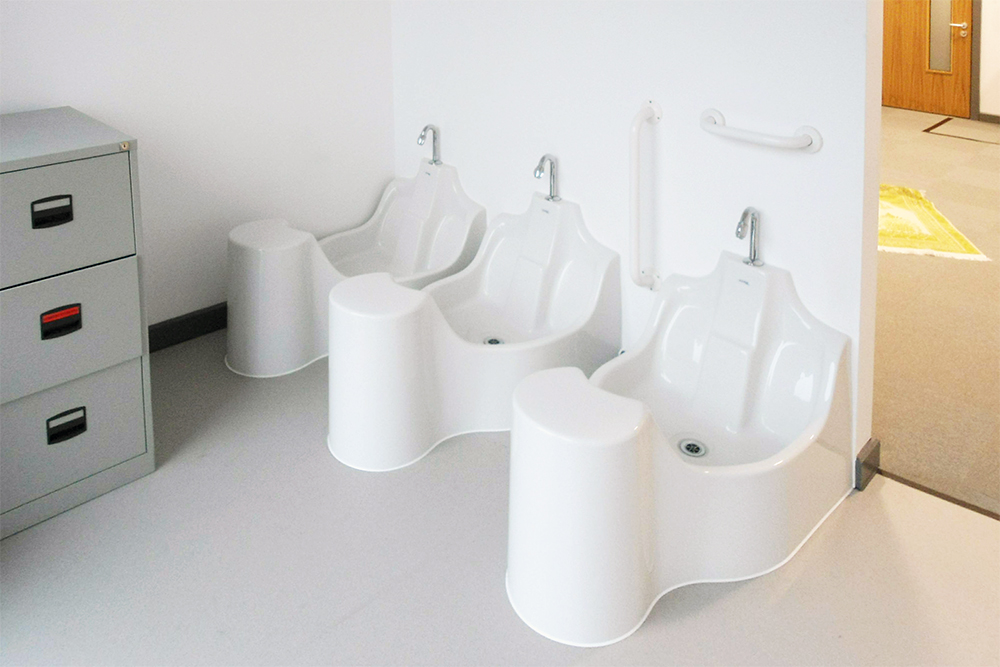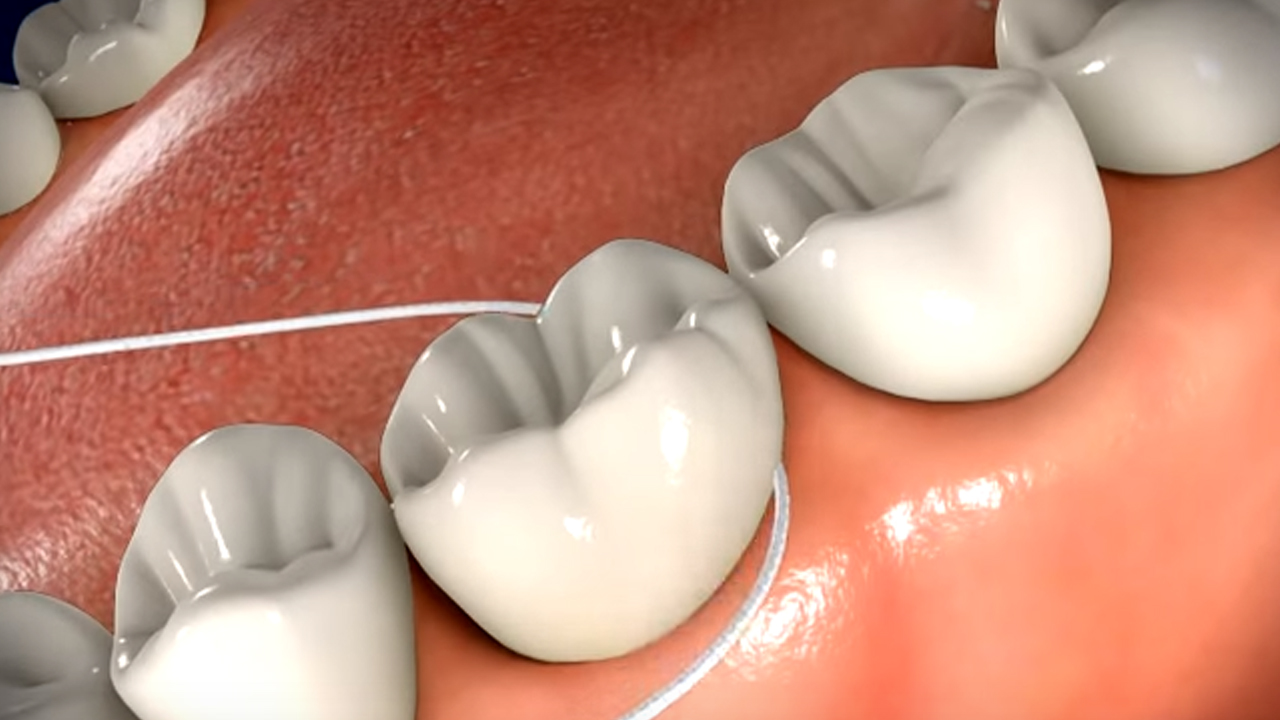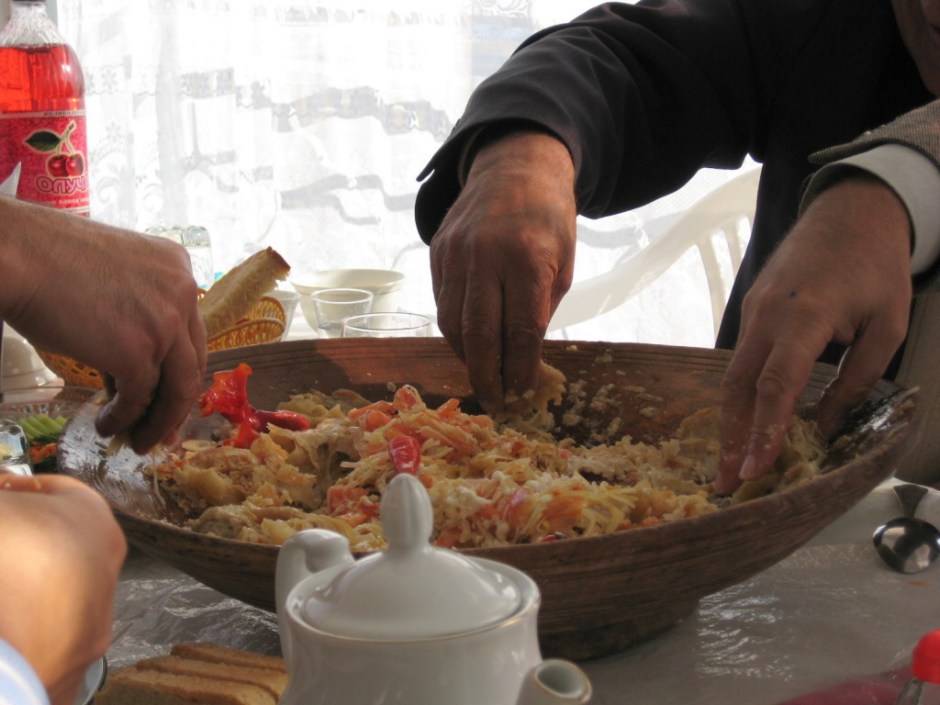QUESTION:
The leader of the Prophets, Sayyidunā Muhammad (may the peace and blessings of Allāh be upon him) has differentiated between the urine of a boy and that of a girl, as it has come in a Hadith that the urine of a girl should be washed and that the boy’s urine being sprinkled with water is sufficient. But the Hanafī School is not ready to accept this differentiation of Rasūlullāh (may the peace and blessings of Allāh be upon him). According to the school of Imām Abū Hanīfah (may Allāh cover him in mercy), there is no difference between the impureness of the urine of a male child and of a female child, and it is necessary to wash both. (Why is this?)
[Ahnāf kā Rasūlullah se ikhtilāf, pg 261]
ANSWER:
First of all, we will examine the Ahādīth which relate to sprinkling water on the urine of a male child.
حَدَّثَنِی أَبُو السَّمْحِ قال قَالَ النَّبِیُّ صَلَّی اللَّہُ عَلَیْہِ وَسَلَّمَ: یُغْسَلُ مِنْ بَوْلِ الْجَارِیَۃِ وَیُرَشُّ مِنْ بَوْلِ الْغُلَامِ
(1) Abū Samh narrates that The Prophet (may the peace and blessings of Allāh be upon him) said: “The urine of a girl will be washed and water will be sprinkled on the urine of a boy”.
[Sunan Nasā’ī, Bāb Bowl al-Jāriyah Hadith 305]
The author mentions this Hadith of Nasā’ī, but by doing taqlīd [imitation] of his predecessors in deception, he [the author] fails to mention the previous Hadith [in Nasā’ī], which establishes the position of the Ahnāf [Hanafīs], wherein there is mention of washing the boy’s urine, we will expound on this ahead.
_____________
Another Hadith in which the word ‘[sprinkling] ‘رش’ is used:
عَنْ أُمِّ قَیْسٍ بِنْتِ مِحْصَنٍ، قَالَتْ : دَخَلْتُ بِابْنٍ لِی عَلَی النَّبِیِّ صَلَّی اللَّہُ عَلَیْہِ وَسَلَّمَ لَمْ یَأْکُلِ الطَّعَامَ، فَبَالَ عَلَیْہِ، فَدَعَا بِمَاء ٍ فَرَشَّہُ عَلَیْہِ
(2) Sayyidah Umm Qays (may Allāh be pleased with her), daughter of Mihsan said: “I entered upon the Prophet (may the peace and blessings of Allāh be upon him) with a son of mine, he [the child] wasn’t eating food at this stage, he urinated upon Him (may the peace and blessings of Allāh be upon him), so He (may the peace and blessings of Allāh be upon him) asked for some water and then proceeded to sprinkle it [on the urine]”
[Sunan Tirmidhī Mā Jā-a Fī Nadh Bowl Qabl ay-Yat’am, Hadith 71 & Sunan ibn Mājah Kitāb al-Tahārah, Hadith 524]
_____________
Those Ahādīth in which the word نضح is used, which means ‘to pour water’
عَنْ أُمِّ قَیْسٍ بِنْتِ مِحْصَنٍ: أَنَّہَا أَتَتْ بِابْنٍ لَہَا صَغِیرٍ لَمْ یَأْکُلِ الطَّعَامَ إِلَی رَسُولِ اللَّہِ صَلَّی اللَّہُ عَلَیْہِ وَسَلَّمَ، فَأَجْلَسَہُ رَسُولُ اللَّہِ صَلَّی اللَّہُ عَلَیْہِ وَسَلَّمَ فِی حَجْرِہِ، فَبَالَ عَلَی ثَوْبِہِ، فَدَعَا بِمَاء ٍ فَنَضَحَہُ وَلَمْ یَغْسِلْہُ
(3) Sayyidah Umm Qays (may Allāh be pleased with her), daughter of Mihsan narrates that: “she came to Rasūlullāh (may the peace and blessings of Allāh be upon him) with her small son-who was not yet eating – Rasūlullāh (may the peace and blessings of Allāh be upon him) placed the boy in His blessed lap, that child urinated on His (may the peace and blessings of Allāh be upon him) shirt. He (may the peace and blessings of Allāh be upon him) asked for some water and then poured it on the clothes, but did not wash them (i.e. did not exaggerate in washing)”.
[Sahīh al-Bukhārī Kitāb al-Wudū Bāb Bowl al-Sibyān, Hadith 223 & Sunan Abū Dāwūd Kitāb al-Tahārah, Hadith 524]
This is the very Hadith that Imām Abū Dāwūd brings and the word ”فَنَضَحَه is used, the meaning of which is ‘to pour water’, as we will prove ahead.
_____________
عَنْ عَلِیِّ بْنِ أَبِی طَالِبٍ أَنَّ نَبِیَّ اللَّہِ صلی اللہ علیہ وسلم ، قَالَ فِی الرَّضِیعِ: یُنْضَحُ بَوْلُ الْغُلامِ ، وَیُغْسَلُ بَوْلُ الْجَارِیَۃِ قَالَ قَتَادَۃُ ہَذَا مَا لَمْ یَکُنْ یَطْعَمَا الطَّعَامَ
(4) On the authority of Sayyidunā Alī (may Allāh be pleased with him), in regards to the suckling child, The Prophet (may the peace and blessings of Allāh be upon him) said: “water will be poured on the boy’s urine and the girl’s urine will be washed”. Qatādah states: “this is only when the child does not eat food” i.e. water will be poured on the urine whilst the child is suckling only.
[Musnad Abū Ya’lā Bāb Musnad Alī bin Abī Tālib, Volume 1, pg 154]
_____________
عَنْ قَتَادَۃَ عَنْ أَبِی حَرْبِ بْنِ أَبِی الْأَسْوَدِ، عَنْ أَبِیہِ، عَنْ عَلِیٍّ رَضِیَ اللَّہُ عَنْہُ، قَالَ: یُغْسَلُ مِنْ بَوْلِ الْجَارِیَۃِ وَیُنْضَحُ مِنْ بَوْلِ الْغُلَامِ مَا لَمْ یَطْعَمْ
(5) Sayyidunā Alī (may Allāh be pleased with him) states that: “the urine of a girl will be washed and water will be poured on the urine of a boy, as long as he has not started to consume food”.
[Sunan Abī Dāwūd Bāb Bowl al-Sabī Yusīb al-Thawb, Hadith 377 & Sunan al-Tirmidhī Kitāb al-Salāh, Hadith 610 & Sunan ibn Mājah Kitâb al-Tahārah, Hadith 525]
The word يُنْضَحُ is used here which also means ‘to pour water’.
_____________
Proof for the washing of boy’s urine
Those Ahādīth in which there is no mention of sprinkling water on a boy’s urine, rather there is mention of pouring water, and this ‘pouring water’ is in the meaning of washing because when water is poured then the impurity is removed through its pouring/flowing:
عَنْ الْحَسَنِ عَنْ أُمِّہِ أَنَّہَا أَبْصَرَتْ أُمَّ سَلَمَۃَ تَصُبُّ الْمَاء َ عَلَی بَوْلِ الْغُلَامِ مَا لَمْ یَطْعَمْ فَإِذَا طَعِمَ غَسَلَتْہُ، وَکَانَتْ تَغْسِلُ بَوْلَ الْجَارِیَۃِ
(6) On the authority of Hassan al-Basrī who narrates from his mother, who was the slave-girl of the Mother of The Believers, Umm Salmah (may Allāh be pleased with her) that: “she would see Umm Salmah pouring water on the urine of a boy as long as he did not eat, but when he started to eat, she would wash it, and she would wash the urine of a girl (i.e. whether she was eating food yet, or not)”.
[Sunan Abī Dāwūd Bāb Bowl al-Sabī Yusīb al-Thawb, Hadith 379]
_____________
عَنْ عَائِشَۃَ قالت: أُتِیَ رَسُولُ اللَّہِ صَلَّی اللَّہُ عَلَیْہِ وَسَلَّمَ بِصَبِیٍّ فَبَالَ عَلَیْہِ، فَدَعَا بِمَاء ٍ فَأَتْبَعَہُ إِیَّاہُ
(7) The Mother of The Believers Sayyidah Ā’ishah says: “a child (male) was presented in the noble court of Rasūlullāh (may the peace and blessings of Allāh be upon him), he [the child] urinated upon Him (may the peace and blessings of Allāh be upon him) so He (may the peace and blessings of Allāh be upon him) asked for some water and then poured it over it [the urine]”.
This is that Hadith which the author did not mention, however, the truth does not remain hidden. Therein, is the mention of the pouring of water upon the boy’s urine, and the Ahnāf (Hanafī-Sunnīs) say that ‘pouring’ is in the meaning of washing, as impurity is removed through it [pouring water].
[Sunan Nasā’ī Bāb Bowl al-Sabī aladhī lā Ya-kul al-Ta’ām, Hadith 304 & Sahīh al-Bukhārī Kitāb al-Wudū, Hadith 222]
_____________
عَنْ ہِشَامِ بْنِ عُرْوَۃَ عَنْ أَبِیہِ عَنْ عَائِشَۃَ رَضِیَ اللَّہُ عَنْہَا قَالَتْ کَانَ رَسُولُ اللَّہِ صَلَّی اللَّہُ عَلَیْہِ وَسَلَّمَ ، یُؤْتَی بِالصِّبْیَانِ فَیَدْعُو لَہُمْ فَأُتِیَ بِصَبِیٍّ مَرَّۃً فَبَالَ عَلَیْہِ فَقَالَ صُبُّوا عَلَیْہِ الْمَاء َ صَبًّا
(8) Sayyidah Ā’ishah states: “children would be brought to The Messenger of Allah (may the peace and blessings of Allāh be upon him), so that He (may the peace and blessings of Allāh be upon him) may supplicate [make du’â] for them, once, a child (male) was bought to Him (may the peace and blessings of Allāh be upon him) and he [the child] urinated upon Him (may the peace and blessings of Allāh be upon him), He (may the peace and blessings of Allāh be upon him) said ‘pour plenty of water upon it’ “.
‘Abdur-Rahmān bin Abī Laylā says: “once, in the month of Rajab, a child (male) urinated on His (may the peace and blessings of Allāh be upon him) blessed chest, Rasūlullāh (may the peace and blessings of Allāh be upon him) then asked for some water and poured it over it.
_____________
Those explicit Ahādīth in which there is mention of maintaining purity from urine, generally
The Ahādīth which will be cited now, mention staying away from urine in general, whomever it belongs to, whether it is a boy’s or a girl’s, there is no condition stipulated:
عَنْ أَبِی صَالِحٍ عَنْ أَبِی ہُرَیْرَۃَقَالَ قَالَ رَسُولُ اللَّہِ صَلَّی اللَّہُ عَلَیْہِ وَسَلَّمَ: أَکْثَرُ عَذَابِ الْقَبْرِ مِنْ الْبَوْلِ
(9) “Much of the punishment of the grave is due to urine”
[Mustadrak ‘alā al-Sahīhayn, Volume 1, Pg 293, Hadith 653]
Imām Hākim states: “This Hadith is authentic [Sahīh] according to the conditions of the Shaykhayn [Imām Bukhārī & Muslim]
_____________
عَنْ أَبِی ہُرَیْرَۃَ عَنْ النَّبِیِّ صَلَّی اللَّہُ عَلَیْہِ وَسَلَّمَ، قَالَ: اسْتَنْزِہُوا مِنْ الْبَوْلِ، فَإِنَّ عَامَّۃَ عَذَابِ الْقَبْرِ مِنْہُ
(10) The Prophet (may the peace and blessings of Allāh be upon him) said: “Save yourself from urine as the prevalent punishment of the grave is due to it [urine]”.
[Dāraqutnī Bāb Najāsah al-Bowl wa al-Amr bi al-Tanzih Minhū, Volume 1, Hadith 458]
There is mention of a general warning to save oneself from urine. There is no detail stating that it is not necessary to stay away from the urine of such animals whose meat is lawful to eat, but that one must only save oneself from the urine of the animals whose meat is not eaten.
عَنْ أَبِی یَحْیَی الْقَتَّاتِ عَنْ مُجَاہِدٍ عَنْ ابْنِ عَبَّاسٍ أَنَّ رَسُولَ اللَّہِ صَلَّی اللَّہُ عَلَیْہِ وَسَلَّمَ، قَالَ: إنَّ عَامَّۃَ عَذَابِ الْقَبْرِ مِنْ الْبَوْلِ فَتَنَزَّہُوا مِنْہُ
[al-Mustadrak li al-Hākim, Volume 1, Hadith 293 & Rawāh al-Tabārānī fī Mu’jamih wa al-Dār Qutnī thum al-Bayhaqī fī Sunanihimā]
The narrator ‘Abū Yahyā’ who is mentioned in this Hadith, has been declared ‘Thiqah [reliable]’ by some scholars, such as Imām Dārimī who said that Yahyā bin Ma’īn declared that: ‘Abū Yahyā is a Thiqah narrator’.
Explanation – in the forthcoming Ahādīth, many words have been used in relation to the washing of a child’s urine, namely: نضح، رش، اتباعالماء، صب and in the narration of Muslim, the words: لم بغسله غسلا are used.
The word نضح has two meanings: one is to sprinkle water and the other is to pour water; in these Ahādīth the word ‘نضح’ comes in the meaning of pouring, and not in the meaning of sprinkling because when the Arabs use this word, they intend the meaning of pouring.
Just as The Prophet (may the peace and blessings of Allāh be upon him) mentioned:
“إنِّی لَأَعْرِفُ مَدِینَۃً یَنْضَحُ الْبَحْرُ بِجَانِبِہَا”
“I am aware of such a city whose border is covered by the sea (i.e. water flows on it’s borders)”.
[Sharh al-M’ānī al-Āthār, Volume 1, pg 92]
And it cannot be translated as sprinkling here, as a sea does not sprinkle water, rather it flows.
Pre-ejaculation fluid [Madhī] – which is in the ruling of urine – is necessary to wash [by agreement], upon this a Hadith is mentioned, using the word ‘نضح’, and there it [نضح] is in the meaning of صبّ. According to the Hanafīs ‘pouring’ is in the meaning of washing. Just as He (may the peace and blessings of Allāh be upon him) said:
“یَکْفِیکَ أَنْ تَأْخُذَ کَفًّا مِنْ مَاء ٍ فَتَنْضَحَ بِہِ ثَوْبَکَ حَیْثُ تَرَی أَنَّہُ أَصَابَ مِنْہُ “. قَالَ أَبُو عِیسَی ہَذَا حَسَنٌ صَحِیحٌُ”
“It is sufficient that you take a handful of water and pour it on that part of your garment that you see Madhī”.
Imām Tirmidhī declares: “This Hadith is Hassan Sahīh and according to him, here it is necessary to wash [the Madhī]”.
[Sunan Tirmidhī Mā Jā-a Fī al-Madhī Yusīb al-Thowb, Hadith 115 & Sunan Abī Dāwūd Kitāb al-Tahārah, Hadith 210 & Sunan ibn Mājah Kitāb al-Tahārah, Hadith 506]
The word رش also has two meanings: one is to sprinkle and the second is to wash.
دلیل:عَنْ أَسْمَاء َ بِنْتِ أَبِی بَکْرٍ، أَنَّ امْرَأَۃً سَأَلَتِ النَّبِیَّ صَلَّی اللَّہُ عَلَیْہِ وَسَلَّمَ عَنِ الثَّوْبِ یُصِیبُہُ الدَّمُ مِنَ الْحَیْضَۃِ، فَقَالَ رَسُولُ اللَّہِ صَلَّی اللَّہُ عَلَیْہِ وَسَلَّمَ حُتِّیہِ ثُمَّ اقْرُصِیہِ بِالْمَاء ِ ثُمَّ رُشِّیہِ وَصَلِّی فِیہِ
Proof: Asmā bint Abī Bakr (may Allāh be pleased with her) said: “a woman asked The Prophet (may the peace and blessings of Allāh be upon him) regarding those clothes which are soiled with menstrual blood, He (may the peace and blessings of Allāh be upon him) replied: ‘scrape it, then rub it with water mixing it in, then wash it with water and then pray in it’ “.
[Sunan Tirmidhī Mā Jā-a Fī Ghusl Dam al-Hayd min al-Thowb, Hadith 138 & Sahīh al-Bukārī Kitāb al Wudū, Hadith 227]
Here, according to all, the menstrual blood will be washed, however, the word ‘رشّ’ is used here. As for the other words used in the Ahādīth such as: صبالماء or اتباعالماء then their meaning is apparent, which is to pour water. According to the Hanafīs, pouring is washing.
Imām-e-A’zam Abū Hanīfah based his position on the apparent meaning of the words, in which there was no doubt or suspicion, and interpreted the words: نضح، رش & صبّ as washing, so that concurrence between the narrations may be achieved and that the [apparent] contradiction in the Ahādīth may come to an end.
And everyone – including today’s Wahhābīs – also accepts that caution is in washing the male child’s urine. In addition, Imām-e-A’zam Abū Hanīfah (may Allāh cover him in mercy) was very scrupulous when it came to worship; this is why he did not differentiate between the urine of a boy or a girl, and gave the Fatwā [verdict] that they both be washed.
Also, it is important to remember that if such an issue arises about which there are various narrations, then the principles of Tatbīq [reconciliation] and Tarjīh [preference] will be acted upon. Whereby, reconciliation between narrations is attempted, if this is not possible, then one of the narrations will be given preference and acted upon, and this is the principle which is recognised by all. As it is mentioned in Tadrīb al-Rāwī & Sharh Nukhbah: “if two Hadith [apparently] contradict, then there will be an attempt at reconciliation between them, if this is not possible, then one narration will be given preference and acted upon”
[Tadrīb al-Rāwī Sharh Taqrīb li al-Imām Jalāl al-Dīn Suyūtī, al-Nou’ al-Sādis wa al-Thalāthūn, pg 185]
[Tahqīq al-Ragbah fī Towdīh al-Nukhbah, pg 60]
And everyone agrees that the urine of a suckling child is impure [najas].
The Hanafīs, acting upon this very principle of Tatbīq, state that narrations regarding washing the child’s (male) urine and sprinkling it with water are both present in the books of Ahādīth. The narrations regarding washing the child’s urine and generally saving one’s self from urine are clear and widespread, and their chains of narration are still strong. Also, they are free from any doubt and weakness. Therefore, acting upon the narrations in which the words ‘نضح’ and ‘رش’ are mentioned, they are taking them in the meaning of washing as one of their meanings is to wash, which is accepted by all. Thus, all narrations become capable of being acted upon. As it is mentioned in at-Tamhīd: “here, we will interpret ‘نضح’ as pouring without rubbing”
[al-Tamhīd limā fī mūt al-Hadīth al-‘Āshir, pg 108]
Explanation of ‘Allāmah ibn Hajar’s Fath al-Bārī Sharh Sahīh al-Bukhārī
Come! Let’s hear all of this from Allāmah ibn Hajar’s Fath al-Bārī, who the Wahhābīs follow surreptitiously, they steal his research, and attempt to make it the basis for their fabricated ideology.
“There is no conflict between those narrations which mention ‘رش’ and those which mention ‘نضح’ because in the beginning there is رش i.e at first there is sprinkling of water, and it ends in نضح. The meaning of نضح is to pour water, the narration of Imām Muslim supports this: “He (may the peace and blessings of Allāh be upon him) asked for water and then poured it, and the narration of Abū ‘Awānah is the same”.
[Fath al-Bārī, Bāb Bowl al-Sibyān, Volume 1, pg 327]
Imām Khattābī states: “Here, I say that ‘نضح’ means washing”.
[Mu’āllim al-Sunan, Volume 1, pg 223]
Answering some ambiguities
AMBIGUITY No. 1: If the urine of both a boy and girl are to be washed, then why are different words used in the Ahādīth, and why was the word ‘يغسل (to wash)’ not used?
ANSWER: the jurists have gave two replies to this:
(1) The urine of a girl has a stronger odour, therefore it is necessary to wash it with exaggeration, if this is not done, then the smell will still remain after washing, therefore, the word ‘يغسل’ was used. Whereas, the urine of a boy does not possess as much mustiness, due to which the odour is not as strong [as girl’s urine], therefore, even a little amount of washing will dispel the smell. This is why the word ‘صبّ (to pour water)’ was used.
(2) The place of exit [makhraj] of the boy’s urine is confined, therefore, his urine falls in one place, so if water is poured on it, the garment will be washed, whereas, the place of exit [makhraj] of the girl’s urine is spacious and her urine falls on various parts of the clothes, and sometimes, the whole garment becomes covered with urine, due to which, the whole garment must be washed. This is why different words are used for each one in the Ahādīth.
AMBIGUITY No. 2: in some narrations, the words ‘ لم بغسله (he did not wash it)’ are used when referring to a boy’s urine, just as it is mentioned in the narration of Bukhārī, so what is the meaning of this?
ANSWER: in regards to the words ‘لم يغسله’, Allāmah ibn Hajar states: “Imām Asīlī says that, ‘Imām Bukhārī’s words ‘لم يغسله’ are not part of the Hadith, rather these are the words of the narrator; ibn Shihāb. The Hadith is only marfū’* until the words ‘فنضحه’, and that is how Ma’mar narrated it from ibn Shihāb, ibn Abī Shaybah records the Hadith until the words ‘فرشه’ and he did not increase upon this. He gave the proof that this is the narration in the Musannaf of ‘Abdul al-Razāq from Imām Mālik, and in this [narration], the words: ‘لم يغسله’ are present”.
*A Marfū’ [elevated] Hadith is that Hadith which is attributed to Rasulullah ﷺ
[Fath al-Bārī, Bāb Bowl al-Sibyān, Volume 1, pg 327]
Even if these words were part of the narration, then Imām Mālik is the narrator of this narration, and the rule is that a narrator does not narrate something that is against his own narration, otherwise he will fall into disrepute. Imām Mālik says that a boy’s urine is to be washed and he has stated ‘لم يغسله’ is a negation of excessive washing i.e. there will be no exaggeration in washing, and the narrator has greater understanding of the meaning of his narration, in comparison to others. Therefore, it is not a negation of washing, in general, rather, it is a negation of excessive washing, which is also the position of the Hanafīs.
Upon this, we have the narration of Sahīh Muslim: “لم يغسله غسلا”, those who study Nahw know that Maf’ūl Mutlaq comes for emphasis and gives the meaning of exaggeration; and the rule is that when a negative particle enters upon an emphasised verb [fi’l], then this isn’t negation of the verb itself, but of the emphatic meaning of the verb. Here, the negation is not of washing, rather, the negation of the emphasis is intended i.e. it will not be washed excessively.
Mr Yazdānī! Your book ‘Ahnāf kā Rasūlullah se ikhtilāf’ is full of frivolous couplets, yes, I understand that in order for a book to be published, there is a need to increase the number of pages, however, on some occasions, in order to prove your false claims, you have annihilated the rules of prosody. If I wished, I could have penned many couplets in your praise (read: criticism) as I am well versed in poetry, and by the grace of Allah (Most High), I am well acquainted with the science of prosody, however, I prefer only to lift my pen in praise [na’t] of my Master (may the peace and blessings of Allāh be upon him).
The author’s dishonesty: Mr Yazdānī, due to his deception and whilst bidding farewell to his senses, presented Hadith no. 305 from Nasā’ī, however, he failed to see the explicit Hadith which precedes this [Hadith no. 304], which establishes the position of the Hanafīs and mentions that water should be poured on the urine of a male child. And as we have reiterated many times, according to us, pouring/flowing water over the impurity is the same as washing it. If this Hadith was mentioned some pages ahead in this hadīth book [Nasāī], then we would have formed a good opinion and thought that perhaps the author did not see the Hadith. But, regrettably, this Hadith [no. 304] is present just before it [Hadith no. 305]. How great of a deception is it to avoid this explicit Hadith, then, leaving some and acting upon others!
The abnormal thinking of Non-Madhhabists [Ghayr Muqallidīn]
Here, there is an attempt to prove that the urine of male child is pure, however, when it comes to the pure and clean urine of Rasūlullah (may the peace and blessings of Allāh be upon him), then let’s see what they have to say [astaghfirullah]: the leader of the non-Madhhabists, Hāfiz ‘Abdullah “Muhaddith Rawprī” (upon him is what is upon him) was asked: “is the [blessed] urine of The Noble Prophet (may the peace and blessings of Allāh be upon him) pure [pāk]? As a woman drank His [blessed] urine and He (may the peace and blessings of Allāh be upon him) said “you will not experience stomach aches after this day”. In response to this question, “Muhaddith” ‘Abdullah said: “this narration does not prove the purity of His (may the peace and blessings of Allāh be upon him) [blessed] urine as it was drunk accidentally, thus remains the matter of His (may the peace and blessings of Allāh be upon him) statement that ‘you will not experience stomach aches after today’; this is a cure and some impure things become a means of cure” [we seek refuge with Allāh from such utterances].
[Fatāwā Ahle Hadīth, Volume 1, pgs 250-251]
A few questions to the Ghayr Muqallidīn, from myself:
(1) If you people [ghayr maqallidīn] reject the reconciliation between narrations [Tatbīq bayn al-Ahādīth] of the Hanafīs, their answers and do not accept it, then it is my request that you present a reconciliation of all the Ahādīth mentioned above and present a concurrence [Tatbīq] of the Ahādīth, such that it becomes possible to act upon all of them, just as the Hanafīs have put forward and fulfilled their duty, and have shown that all narrations can be acted upon.
(2) Do you consider the urine of male child to be impure [najas], if not, then the matter is resolved; ‘الخبيثٰت للخبيثين’
(3) If it is not impure, then what is the purpose of sprinkling water over it? As a pure thing is pure, there is no need to even sprinkle water upon it.
(4) If you deem the urine of a male child to be impure, then until what age will his urine not be washed, but only sprinkled with water?
(5) How much is the child required to eat before his urine is washed? For example, if a 2/3 months old child begins to eat cereal, along with breastfeeding, then will his urine be washed or not? Then two children who eat cereal are not the same; one might only eat one or two spoonfuls of cereal and drink a lot of milk, whereas, the other might eat plenty of cereal, but only drink a little milk, then of these two, whose urine will be washed and whose will be not be washed?
(6) It should also be revealed as to which food a child must eat in order that his urine be washed? If you reply that if he eats any food other than milk, then his urine is impure and will be washed, then my question is that, children are fed sugar or dates on the first day of birth, so what will your verdict be regarding this child’s urine?
The answers for all these questions should be derived from Hadith, as according to you, Taqlīd is shirk!
Answered by Abu al-Hassan Mufti Qasim Zia al-Qadri
Translated by Zameer Ahmed
Read the original URDU answer in PDF format here: Wahabi objection to the Hanafi school – the urine of a child [URDU]
Read the English answer in PDF format here: Wahabi objection to the Hanafi school – the urine of a child [English]
